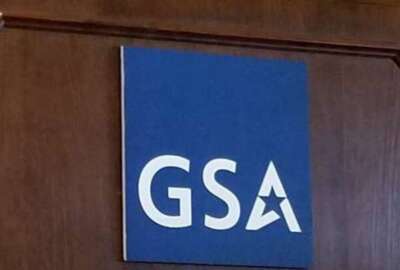Bill protects military pay if government defaults
A new bill would protect military pay even if the government defaults because Congress doesn\'t authorize an increase to the government\'s debt ceiling. Rep. Steve...
wfedstaff | June 4, 2015 8:37 am
By Jory Heckman
Federal News Radio
Without a clear consensus from Congress to raise the debt ceiling in the next few weeks, many essential government services face a possible shutdown.
Among the innumerable consequences is the emotionally-charged scenario of active service members joining the ranks of government employees waiting for their paychecks.
Rep. Steve King (R-Iowa) has worked to put legislation in place that would guarantee soldiers’ pay, regardless of the looming debt ceiling crisis.
King has sponsored a bill, the Payment Reliability for our Obligations to Military and Investors to Secure Essential Stability (PROMISES) Act, which would safeguard military salaries from becoming another gambling chip in the political negotiations.
“The PROMISES Act says that our troops will be paid on-time, every time, by law, whether we reach a funding gap, which would be the case of a CR negotiation that we saw in March and April, or whether we reach a limit on the debt ceiling,” King told Federal News Radio.
“It was clear to many of us, and it should have been clear to every one of us, that the lack of military pay was a threat that caused a significant number of the freshman [congressman] especially to vote for a CR [continuing resolution] agreement that they might not have voted for otherwise,” he added. “When we see that used as a tool, we start to see the immorality of withholding military pay until we can reach some kind of political deal.”
King said the bill was inspired by President Barack Obama’s inauspicious forecasts of a shutdown in Social Security, Medicare and Medicaid payments in the event of a default.
The PROMISE Act would not protect the civilian side of the Defense Department, or any other government employees, though, King said. “If we start down through the line and start adding more and more exceptions to this, we arrive at having spent all the money, and then we’ve just created an argument rather than solve the problem, he said. “I only went to the two highest priorities, and I didn’t go below that.”
King went on to say that the PROMISE Act intends to remove some of the emotional tension from the debate, rather than offer a workable “Plan B” for all of government.
“When you introduce a bill like this, it isn’t that it’s designed to manage the sequence and the priority of the payment of all of government,” said King. “It’s designed to take away a couple of political tools that they’re threatening to use and actually are using in this debate that we’re have now.”
King admitted that his own district stands to lose much in the wake of a federal default. “I don’t know of any district that is more dependent upon agriculture than the area of Iowa that I represent, and much of that business is connected to the farm service administration division of the USDA,” he said. “If that all stopped and the FSA offices closed, that would put a halt to a lot of the decision-making that goes on in all of agriculture.”
Despite Iowa’s precarious situation in these negotiations, King said Congress needs to address its problems from the top-down.
“I’m very much attentive to how a government shutdown would affect our overall economy and our quality of life, but I also set the highest priorities: pay our troops first, and guarantee that we keep our credit second.”
RELATED STORIES:
Debt ceiling stalemate could lead to ‘uncharted territory’
Wrangling continues over debt ceiling, budget
Jory Heckman is an intern with Federal News Radio.
(Copyright 2011 by FederalNewsRadio.com. All Rights Reserved.)
This story is part of Federal News Radio’s Congressional Spotlight sponsored by United Technologies Corporation. Click here for more stories on Congress.
Copyright © 2025 Federal News Network. All rights reserved. This website is not intended for users located within the European Economic Area.





